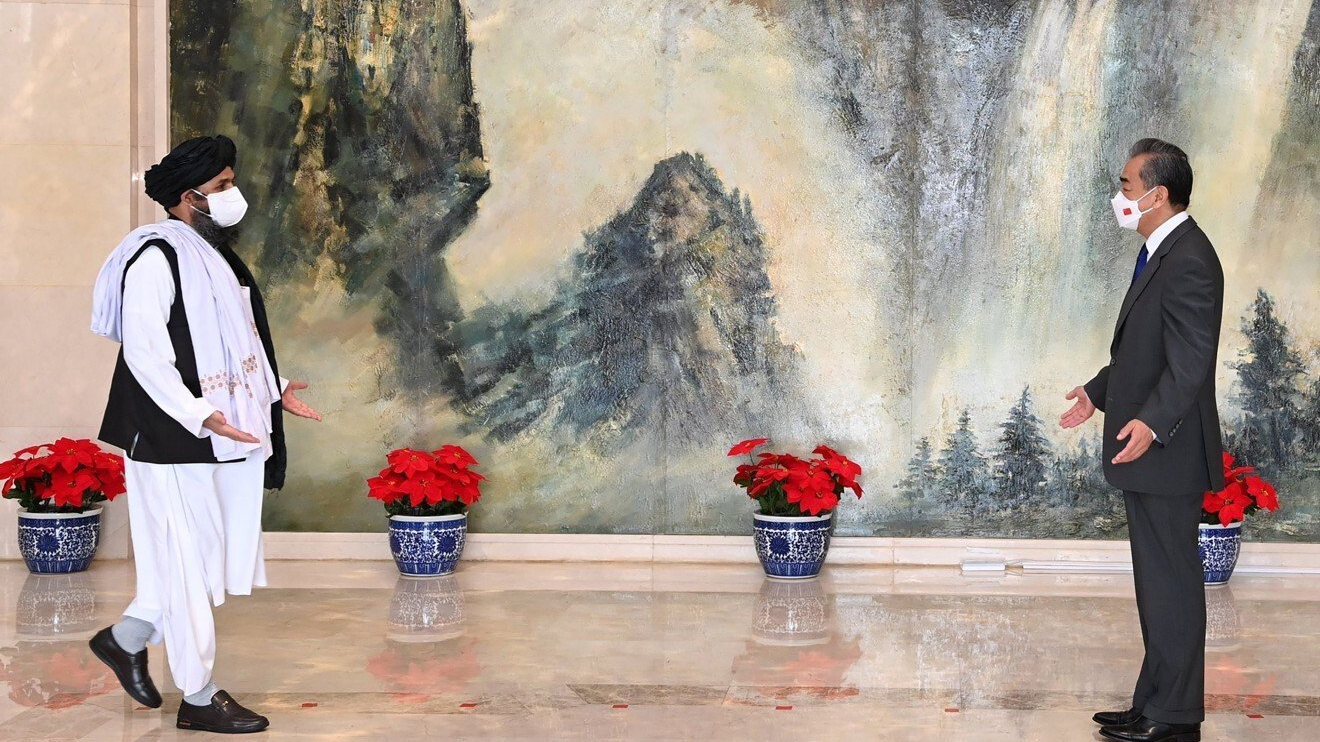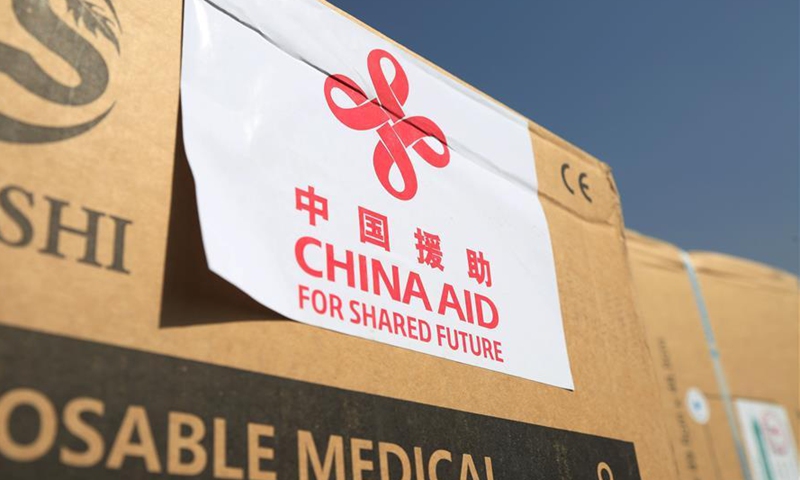
Chinese Foreign Minister Wang Yi welcomes Mullah Abdul Ghani Baradar, head of the Taliban political commission, during their meeting in Tianjin, China, July 28, 2021. /Xinhua
Chinese Foreign Minister Wang Yi welcomes Mullah Abdul Ghani Baradar, head of the Taliban political commission, during their meeting in Tianjin, China, July 28, 2021. /Xinhua
Editor's note: Haider Rifaat is a features writer for OK! Pakistan, the international edition of OK! Magazine. He is also a writer for Arabian Moda and Flanelle magazine and serves as the creator and host of Pakistan's first web talk show – The Haider Rifaat Show. The article reflects the author's opinions, and not necessarily the views of CGTN.
War-torn Afghanistan has been subject to decades of U.S. military intervention, and after a 20-year combat in the country, U.S. President Joe Biden finally made the call to withdraw forces this year. What followed next was nothing short of a nightmare for Afghans.
A few weeks ago, news broke that the Taliban confiscated a handful of provincial capitals in Afghanistan. Media outlets and foreign policy experts grew wary of Taliban's foreseeable rise in the country. With former Afghan President Ashraf Ghani fleeing the scene, the Taliban had all the more reason to reign Afghanistan, and indeed succeeded.
Afghans have entered a new era of torment following the U.S.'s decision to withdraw forces. Afghans are anxious, fearful and downhearted. Families are worried about the future of their children. Thousands attempted to flee Afghanistan, of which some succeeded while others surrendered.
Poor Afghan households cannot afford food let alone plane tickets to fly out for a better life. Women and children in particular fear the Taliban more than ever. The recent suicide bombings at the Kabul airport further escalated tensions in the country and sent shockwaves around the world.
In times of despair, a country like China is prepared to help Afghanistan. Despite the Taliban rule, China seems to be one of the few countries willing to work with the power to establish peace in Afghanistan. This would give China a cutting edge over other countries that refuse to negotiate with the Taliban.
In 2014, China pledged to provide Afghanistan with 2 billion Chinese yuan ($30.9 million) in the next four years, according to the Ministry of Foreign Affairs of the People's Republic of China. This aid was meant for housing projects, education, a solar power station and other areas of socioeconomic development.
However, China's role in Afghanistan is not as pronounced as that of America, which was perceived as an intervener, a country that meddled in Afghanistan to counter terrorism and wasted 20 years to fight a formidable entity – Al Qaeda – only to realize that the Taliban took over.
Unlike the U.S., the Chinese government assisted Afghanistan in the past without intervening in the country's political affairs. In the near future, China could work towards the socioeconomic growth of Afghanistan by providing financial assistance to rebuild the country's economy, explore pathways of developing infrastructure and educational institutions, and contribute vastly toward the health sector, therefore ushering in a new era of change for the Afghans.

Anti-epidemic supplies from China during the handover ceremony at Hamid Karzai International Airport in Kabul, Afghanistan, October 8, 2020. /Xinhua
Anti-epidemic supplies from China during the handover ceremony at Hamid Karzai International Airport in Kabul, Afghanistan, October 8, 2020. /Xinhua
Take a look at the China-Pakistan Economic Corridor. It fostered economic growth in Pakistan, resulting in higher employment rates and GDP growth. China's Belt and Road Initiative also intends to bolster economic ties with almost 70 countries. These major projects aim to bridge gaps rather than create divides.
Therefore, collaboration between the Taliban and the Chinese government would also result in socioeconomic growth in Afghanistan. Recently, Chinese Foreign Ministry spokesperson Wang Wenbin said at a press conference that the country is prepared to develop friendly ties with Afghanistan and begin the reconstruction process.
Despite optimism, China continues to be needlessly vilified by the Western media, particularly those in the U.S. The American magazine Forbes, for example, recently published a politically motivated article titled "Why China Wants to Get in on Afghanistan's Reconstruction." It states that "China is already eyeing up Afghanistan's vast mineral wealth, using the excuse of wanting to help rebuild the worn-torn country now primarily ruled by the Taliban. In fact, the Americans hadn't even left Afghanistan before China's diplomats showed up to help."
Not only does this analysis come across as biased but it is ironic that it borrows bits and pieces from a recent "U.S. Global Investors" report. Considering China will remain America's longtime rival, a report published by a U.S. investment firm is bound to present biases against China, which incentivizes certain mainstream media outlets to report unfairly and ultimately shape public opinion.
Regardless of one-sided reportage and the West's generalized perception of China, the country will continue to make efforts to support Afghanistan in the face of sociopolitical challenges.
(If you want to contribute and have specific expertise, please contact us at opinions@cgtn.com.)

